 Your new post is loading...
 Your new post is loading...

|
Scooped by
Gust MEES
March 17, 6:03 PM
|

|
Scooped by
Gust MEES
July 26, 2024 1:48 PM
|
X uses your data to train its Grok AI assistant, but if you’d like to opt out of that, you can do that right from your settings menu. It is accessible on the web right here, or you can find it yourself if you click the three dots menu, then “Settings and privacy,” then “Privacy and safety,” and then “Grok.

|
Scooped by
Gust MEES
January 31, 2023 4:21 PM
|
If you're like most people, you use the incognito browsing mode when you want to keep your browsing history private. But did you know that incognito mode isn't actually private?
When using incognito mode in your web browser, you may think that your activities are completely anonymous and untraceable. Unfortunately, this is not always the case. Your Internet Service Provider (ISP) and other third-party entities may still be able to track your online activity, even when you are browsing in incognito mode. Not only that: if you share your device with others, even they can find out what you visited in incognito mode. Learn more / En savoir plus / Mehr erfahren: https://www.scoop.it/t/securite-pc-et-internet/?&tag=Privacy

|
Scooped by
Gust MEES
June 16, 2022 4:26 PM
|

|
Scooped by
Gust MEES
July 4, 2021 11:02 AM
|
As IoT devices like Amazon Echo become more and more popular, it isn’t unusual for users to re-sell them. Indeed, it’s increasingly common to come across them on eBay or even at the occasional yard sale. Amazon suggests that, when users are done with a product, they factory reset the device so as to erase any personal information stored within it before sending it back out into the world.
However, it would appear that simply resetting your device won’t actually expunge that data from the face of the Earth and that reselling your device could hypothetically lead to your old information getting boosted.
Researchers with Northeastern University recently spent 16 months buying and reverse engineering 86 used Amazon Echo Dot devices in an attempt to understand any security deficiencies they might have. Learn more / En savoir plus / Mehr erfahren: https://www.scoop.it/t/securite-pc-et-internet/?&tag=Internet+of+things https://www.scoop.it/topic/securite-pc-et-internet/?&tag=iot

|
Scooped by
Gust MEES
January 7, 2021 11:51 AM
|
Certains malwares utilisent désormais le BSSID du point d’accès pour géolocaliser leurs victimes. Ils s’appuient pour cela sur des bases gratuites et accessibles à tous.
Le chercheur en sécurité Xavier Mertens a détecté une nouvelle méthode utilisée par les pirates pour géolocaliser leurs victimes et, le cas échéant, décider de leur sort. Habituellement, ils s’appuient sur l’adresse IP. Mais avec la pénurie d’adresses IPv4, il est de plus en plus difficile de géolocaliser cet identifiant avec certitude, car ces adresses sont de plus en plus échangées d’un opérateur à un autre et d’un pays à un autre.
Dans l’un des derniers codes malveillants analysés, Xavier Mertens a vu que l’auteur intégrait une seconde méthode : la géolocalisation par le BSSID (Basic Service Set Identifier). Cette séquence de 48 bits n’est rien d’autre que l’adresse MAC du point d’accès. Les 24 premiers bits désignent généralement le fournisseur. Les 24 bits restants sont choisis de telle manière à obtenir un identifiant unique de l’appareil. Learn more / En savoir plus / Mehr erfahren: https://www.scoop.it/t/securite-pc-et-internet/?tag=Router

|
Scooped by
Gust MEES
April 28, 2020 12:24 PM
|

|
Scooped by
Gust MEES
January 20, 2020 7:09 PM
|
Das Start-up Clearview AI war der Öffentlichkeit bisher so gut wie unbekannt, und das war durchaus so gewollt. Die kleine Firma hat eine offenbar gut funktionierende, aber auf zahlreichen Ebenen problematische Gesichtserkennungstechnologie an Hunderte Polizeibehörden in den USA verkauft. Nun hat die "New York Times" dafür gesorgt, dass Clearview zum Inbegriff aller Befürchtungen wird, die mit Gesichtserkennung einhergehen. Die Zeitung schreibt vom potenziellen "Ende der Privatsphäre, wie wir sie kennen".
Revolutionär ist an der Technik eigentlich nichts, sie besteht aus lauter Versatzstücken, die es anderswo auch schon gibt. Aber im Zusammenspiel funktioniert sie so gut, dass Ermittler die Software gern und nach eigenem Bekunden auch erfolgreich einsetzen.
Sie müssen dazu nur ein einziges Bild eines Gesuchten bei Clearview hochladen – egal, ob das Bild frontal aufgenommen wurde und ob die Person zum Beispiel eine Sonnenbrille oder einen Hut trägt. Das Bild wird in ein mathematisches Modell des Gesichts umgerechnet, so wie es im Prinzip auch Apples Gesichtserkennung Face ID macht. Dieses Modell wird gegen eine Datenbank abgeglichen - und die hat es in sich: Angeblich besitzt die Firma Clearview eine Sammlung aus drei Milliarden Fotos, die sie ohne Erlaubnis von Facebook, Instagram, YouTube "und Millionen anderen Websites" per Scraping heruntergeladen haben soll.
Diese Fotos werden ebenfalls in mathematische Modelle umgewandelt und bei hinreichender Ähnlichkeit zum hochgeladenen Bild als mögliche Treffer angezeigt, mitsamt den Links zu den jeweiligen Quellen. Das ermöglicht eine schnelle Identifizierung. Learn more / En savoir plus / Mehr erfahren: http://www.scoop.it/t/securite-pc-et-internet/?&tag=Facial+Recognition

|
Scooped by
Gust MEES
December 12, 2019 6:33 AM
|
A recent FBI report warned smart TV users that hackers can also take control of your unsecured TV. "At the low end of the risk spectrum, they can change channels, play with the volume, and show your kids inappropriate videos. In a worst-case scenario, they can turn on your bedroom TV's camera and microphone and silently cyberstalk you," explained the FBI.
Yow!
The risk isn't new. A few years ago, smart TVs from LG, Samsung, and Vizio were spying and reporting on your viewing habits to their manufacturers.
Today, the FBI is warning that "TV manufacturers and app developers may be listening and watching you." It added, "[A] television can also be a gateway for hackers to come into your home. A bad cyber actor may not be able to access your locked-down computer directly, but it is possible that your unsecured TV can give him or her an easy way in the backdoor through your router."
That's true, but while there have been relatively few cases of hackers invading homes via their smart TVs, it's only a matter of time until they're watching and listening to you. Learn more / En savoir plus / Mehr erfahren: http://www.scoop.it/t/securite-pc-et-internet/?tag=smart-TV http://www.scoop.it/t/securite-pc-et-internet/?tag=Internet+of+things

|
Scooped by
Gust MEES
September 13, 2019 5:32 PM
|
Thanks to the success of projects like Let’s Encrypt and recent UX changes in the browsers, most page-loads are now encrypted with TLS. But DNS, the system that looks up a site’s IP address when you type the site’s name into your browser, remains unprotected by encryption.
Because of this, anyone along the path from your network to your DNS resolver (where domain names are converted to IP addresses) can collect information about which sites you visit. This means that certain eavesdroppers can still profile your online activity by making a list of sites you visited, or a list of who visits a particular site. Malicious DNS resolvers or on-path routers can also tamper with your DNS request, blocking you from accessing sites or even routing you to fake versions of the sites you requested. Learn more / en Savoir plus / Mehr erfahren: https://www.scoop.it/topic/securite-pc-et-internet/?&tag=EFF https://www.scoop.it/topic/securite-pc-et-internet/?&tag=DNS

|
Scooped by
Gust MEES
August 12, 2019 2:41 PM
|
Ein neuer Tag, eine neue Blockchain-Applikation. IBM hat in den USA ein weiteres Patent eingereicht, das die Entwicklung eines Webbrowsers für die Blockchain vorsieht. Sagt eurem löschbaren Internetverlauf ade!
Wenn es um Blockchain-Lösungen auf Unternehmensebene geht, ist IBM führend. Die unter Beschuss geratene Computing- und Cloud-Größe bietet nicht nur Blockchain-as-a-Service (BaaS), Anwendungen für das Supply-Chain-Management sowie sein Oracle getauftes Tool für Smart Contracts an. Jetzt soll noch ein Browser hinzukommen – vorausgesetzt, das Unternehmen setzt die Idee in dem Patent auch um.
Browserdaten dauerhaft in der Blockchain Das beschreibt die Aussendung von Nutzerinformationen in ein globales Netzwerk von Knotenpunkten, um sie dort zu speichern und zu verarbeiten. Bei einem Browser wären das also Daten über die aktuelle Session, Bookmarks, installierte Plugins, Sicherheitsupdates sowie Standortdaten und der Verlauf über besuchte Seiten. Wer sich ein bisschen mit Blockchains auskennt, weiß, dass Daten, die in die Blockchain geschrieben werden, auch da bleiben und nachverfolgt werden können. Überlegt euch also schon mal eine Menge neue Varianten von: „Da habe ich aus Versehen drauf geklickt.“ Learn more / En savoir plus / Mehr erfahren: https://www.scoop.it/t/securite-pc-et-internet/?&tag=Privacy

|
Scooped by
Gust MEES
July 10, 2019 6:43 PM
|

|
Scooped by
Gust MEES
May 2, 2019 9:33 AM
|
Sind VPNs legal? Verständlich erklärt
|

|
Scooped by
Gust MEES
October 9, 2024 5:55 PM
|

|
Scooped by
Gust MEES
December 26, 2023 11:54 AM
|
ChatGPT est victime d’une nouvelle faille de sécurité. En exploitant cette brèche, il est possible d’extraire des données sensibles concernant des individus en s’adressant au chatbot d’OpenAI.

|
Scooped by
Gust MEES
August 10, 2022 8:06 AM
|

|
Scooped by
Gust MEES
March 7, 2022 3:10 PM
|
Roughly two-thirds of test digital vaccination applications commonly used today as safe passes and travel passports exhibit behavior that may put users' privacy at risk.
The risks are substantial as these apps are required for large populations worldwide, allowing hackers an extensive target base.
Digital passports
Digital passport apps store proof of a person's COVID-19 vaccination status, full name, ID number, date of birth, and other personally identifiable information (PII) encoded in a QR code or displayed directly in the app. Learn more / En savoir plus / Mehr erfahren: https://www.scoop.it/t/securite-pc-et-internet/?&tag=Privacy Learn more / En savoir plus / Mehr erfahren: https://www.scoop.it/topic/securite-pc-et-internet/?&tag=Coronavirus

|
Scooped by
Gust MEES
June 26, 2021 2:50 PM
|

|
Scooped by
Gust MEES
May 16, 2020 7:14 PM
|
This is a classic identification problem, and efficacy depends on two things: false positives and false negatives.
False positives: Any app will have a precise definition of a contact: let's say it's less than six feet for more than ten minutes. The false positive rate is the percentage of contacts that don't result in transmissions. This will be because of several reasons. One, the app's location and proximity systems -- based on GPS and Bluetooth -- just aren't accurate enough to capture every contact. Two, the app won't be aware of any extenuating circumstances, like walls or partitions. And three, not every contact results in transmission; the disease has some transmission rate that's less than 100% (and I don't know what that is).
False negatives: This is the rate the app fails to register a contact when an infection occurs. This also will be because of several reasons. One, errors in the app's location and proximity systems. Two, transmissions that occur from people who don't have the app (even Singapore didn't get above a 20% adoption rate for the app). And three, not every transmission is a result of that precisely defined contact -- the virus sometimes travels further.
Assume you take the app out grocery shopping with you and it subsequently alerts you of a contact. What should you do? It's not accurate enough for you to quarantine yourself for two weeks. And without ubiquitous, cheap, fast, and accurate testing, you can't confirm the app's diagnosis. So the alert is useless.
Learn more / En savoir plus / Mehr erfahren: https://www.scoop.it/t/securite-pc-et-internet/?&tag=Bluetooth https://www.scoop.it/topic/securite-pc-et-internet/?&tag=SweynTooth https://www.scoop.it/topic/securite-pc-et-internet/?&tag=Contact+tracing

|
Scooped by
Gust MEES
January 28, 2020 9:30 AM
|
Avast Antivirus verkauft massenhaft Browser-Daten seiner Nutzer
Über ein Tochterunternehmen soll der Antiviren-Software-Anbieter Avast massenhaft Browser-Daten von Nutzern verkauft haben.
Jumpshot ist Teil der Avast-Gruppe, die Antiviren-Software anbieten. Das Tochterunternehmen soll laut eines Berichts der Magazine Vice und PCmag massenhaft die Browser-Daten von Nutzern der Avast-Software an Drittunternehmen verkauft haben. Käufer sollen unter anderem Google, Yelp, Microsoft, McKinsey, Pepsi, Sephora, Condé Nast und viele mehr sein.
Zu den Daten, die Jumpshot verkauft hat, gehören nach einer Art Stichprobe von Vice und PCmag Angaben zu Google-Suchanfragen, GPS-Koordinaten von Google Maps, besuchte LinkedIn-Seiten, YouTube-Videos und auch Porno-Seiten samt eingegebener Suchbegriffe und daraufhin angeschauter Videos. Nicht enthalten sind personenbezogene Daten. Allerdings hat Avast für jeden Nutzer seiner Antiviren-Software eine ID, die bei der Installation gespeichert wird – und sich anscheinend weder verändert noch von Avast vergessen wird. Auch wenn Jumpshot diese nicht verkauft, aus den Bewegungsdaten und der Geräte-ID dürften Personen für die Käufer der Daten identifizierbar gewesen sein. Learn more / En savoir plus / Mehr erfahren: https://www.scoop.it/t/securite-pc-et-internet/?&tag=Privacy https://www.scoop.it/topic/securite-pc-et-internet/?&tag=Browsers https://www.scoop.it/topic/securite-pc-et-internet/?&tag=Avast

|
Scooped by
Gust MEES
December 27, 2019 2:33 PM
|
Sicherheitslücken sind auch bei Hardware keineswegs selten. Unser Ratgeber erläutert, welche Geräte besonders gefährdet sind, wie Sie zu Hause konkrete Schwachstellen aufspüren und wie sich das Eindringen von Schadcode verhindern lässt. Weniger im Bewusstsein dagegen ist die Bedrohung durch unzureichend geschützte Hardware. Dabei sind es meist gar nicht per se die Geräte, die böswillig Schaden anrichten. Vielmehr führen auch hier veraltete Gerätesoftware (Firmware), unzureichend geschützte Zugänge, schwache Passwörter und Ähnliches dazu, dass Schadcode eingeschleust und gegebenenfalls übers Heimnetz verbreitet werden kann. Als Angriffspunkte für Hacker eignen sich besonders die Komponenten, die direkt oder per Netzwerk mit dem Internet verbunden sind.
Dazu ein Beispiel: Ein Fernseher ohne Webzugang stellt keine Gefahr dar. Ist der Fernseher dagegen im Netz, was bereits für die Nutzung der Mediatheken erforderlich ist, ist er potenziell gefährdet. Die möglichen Szenarien reichen vom Unbrauchbarmachen durch einen Erpressungstrojaner bis zum Kapern von Kamera und Mikrofon. Einen solchen „großen Lauschangriff“ im Wohnzimmer wünscht sich wohl niemand. Ist das TV-Gerät zusätzlich ins Heimnetz integriert, droht der übrigen IT-Ausstattung Gefahr. Smarte Fernseher illustrieren die Gefahr besonders gut, weil sie mittlerweile in vielen Haushalten stehen, ohne dabei als „Gefahr“ wahrgenommen zu werden. Learn more / En savoir plus / Mehr erfahren: https://www.scoop.it/t/securite-pc-et-internet/?tag=Smart+Home https://globaleducationandsocialmedia.wordpress.com/2014/01/21/why-is-it-a-must-to-have-basics-knowledge-of-cyber-security-in-a-connected-technology-world/ https://www.scoop.it/t/securite-pc-et-internet/?tag=SHODAN+Search+Engine https://www.scoop.it/t/21st-century-learning-and-teaching/?tag=Internet+of+Things https://www.scoop.it/t/securite-pc-et-internet/?tag=smart-TV https://www.scoop.it/t/securite-pc-et-internet/?tag=Internet+of+things https://globaleducationandsocialmedia.wordpress.com/2014/01/21/why-is-it-a-must-to-have-basics-knowledge-of-cyber-security-in-a-connected-technology-world/

|
Scooped by
Gust MEES
October 21, 2019 7:23 AM
|
Developer interfaces used by Security Research Labs researchers to turn digital home assistants into ‘Smart Spies’.
Researchers have found new ways that bad actors can exploit Alexa and Google Home smart speakers to spy on users. This time the hack not only includes eavesdroping, but also includes voice-phishing, or using people’s voice cues to determine passwords.
The vulnerability lies in small apps created by developers for the devices to extend their capability called Skills for Alexa and second app called Actions on Google Home, according to a report by Security Research Labs (SRLabs). These apps “can be abused to listen in on users or vish (voice phish) their passwords,” researchers said.
“The privacy implications of an internet-connected microphone listening in to what you say are further reaching than previously understood,” researchers wrote in their report. “Users need to be more aware of the potential of malicious voice apps that abuse their smart speakers.” Learn more / En savoir plus / Mehr erfahren: https://www.scoop.it/t/securite-pc-et-internet/?&tag=Privacy https://www.scoop.it/topic/securite-pc-et-internet/?&tag=Alexa

|
Scooped by
Gust MEES
August 24, 2019 11:31 AM
|
Big data is the lynchpin ofnew advances in cybersecurity. Unfortunately, predictive analytics and machine learning technology is a double-edged sword for cybersecurity. Hackers are also exploiting this technology, which means that there is a virtual arms race between cybersecurity companies and black hat cybercriminals.
Datanami has talked about the ways that hackers use big data to coordinate attacks. This should be a wakeup call to anybody that is not adequately prepared.
Black Hat Hackers Exploit Machine Learning to Avoid Detection
Jathan Sadowski wrote an article in The Guardian a couple years ago on the intersection between big data and cybersecurity. Sadowski said big data is to blame for a growing number of cyberattacks.
In the evolution of cybercrime, phishing and other email-borne menaces represent increasingly prevalent threats. FireEye claims that email is the launchpad for more than 90 percent of cyber attacks, while a multitude of other statistics confirm that email is the preferred vector for criminals.
This is largely because of their knowledge of machine learning. They use machine learning to get a better understanding of customers, choose them them more carefully and penetrate defenses more effectively. Learn more / En savoir plus / Mehr erfahren: https://gustmees.wordpress.com/2013/12/21/privacy-in-the-digital-world-shouldnt-we-talk-about-it/ https://www.scoop.it/t/securite-pc-et-internet/?&tag=tracking https://www.scoop.it/t/securite-pc-et-internet/?&tag=Privacy https://www.scoop.it/t/securite-pc-et-internet/?&tag=Big+Data

|
Scooped by
Gust MEES
July 27, 2019 9:39 AM
|
Mozilla und das Tor-Projekt arbeiten gemeinsam daran, einen anonymen und sicheren Surfmodus für den Firefox-Browser zu entwickeln. Die zugrundeliegende Technologie stammt aus dem Tor Browser.
Mozillas Firefox-Browser ist bereits in der aktuellen Version mit zahlreichen Tools ausgestattet, die Anwender vor Tracking-Cookies, Fingerprinting, Cryptominern und anderen Nervensägen aus dem Internet schützen sollen. Wie nun aber das Security-Portal Bleeping Computer berichtet, wollen die Open-Source-Spezialisten die Stellschrauben in Sachen Datenschutz noch feiner justieren. So soll künftig ein eigener Tor-Modus in Firefox ein anonymes und sicheres Surfen im Netz garantieren. Hinweise auf das neue Datenschutz-Tool tauchen auch im Mozilla Research Grants 2019H1 auf.
Bevor die Tor-Technologie aus dem gleichnamigen Browser auch in Firefox einziehen kann, gilt es die Performance-Probleme im Zusammenhang mit dem anonymen Netzwerk in den Griff zu bekommen. So erlaubt der Tor-Browser zwar ein nahezu anonymes Surfen im Internet und Darknet, allerdings kann die Performance dabei nicht mit herkömmlichen Browsern wie Firefox oder Chrome mithalten. Im Tor Browser werden Server-Anfragen über ein Netzwerk von Knotenpunkten versendet, um die Identität des Anwenders zu verschleiern - und das kostet Zeit. Neue Technologien wie Tor-over-QUIC, mit DTLS und Walking Onions versprechen hier Abhilfe.
Tor-Modus als Add-on in Firefox
Learn more / En savoir plus / Mehr erfahren: https://www.scoop.it/t/securite-pc-et-internet/?&tag=TOR

|
Scooped by
Gust MEES
July 4, 2019 7:35 AM
|
Amazon’s acknowledgment that it saves Alexa voice recordings – even sometimes after consumers manually delete their interaction history – has thrust voice assistant privacy policies into the spotlight once again.
Amazon has acknowledged that it retains the voice recordings and transcripts of customers’ interactions with its Alexa voice assistant indefinitely. The admission raises questions about how long companies should be able to save highly-personal data collected from voice assistant devices. Learn more / En savoir plus / Mehr erfahren: https://www.scoop.it/t/securite-pc-et-internet/?&tag=Privacy https://www.scoop.it/topic/securite-pc-et-internet/?&tag=Alexa
|



 Your new post is loading...
Your new post is loading...






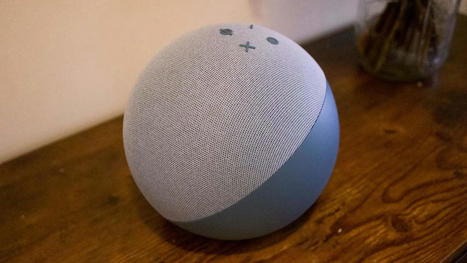

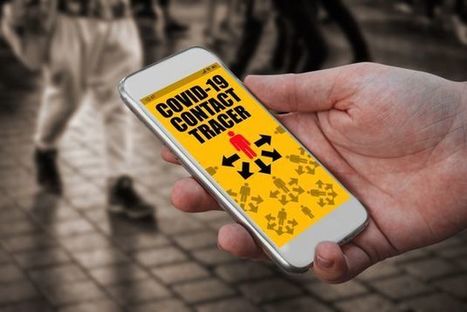


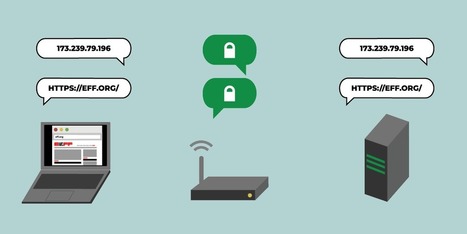



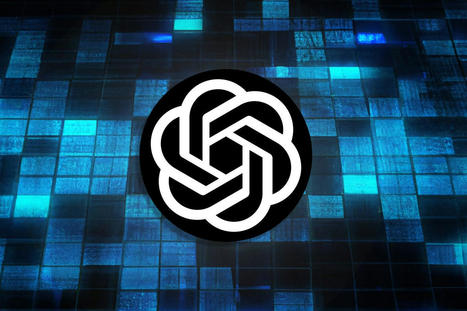
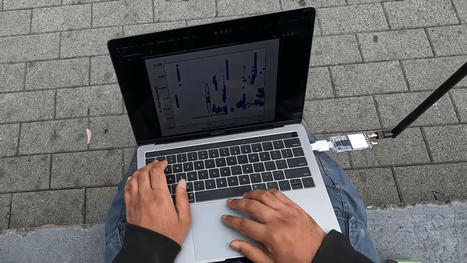
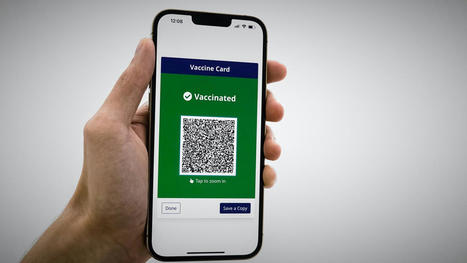
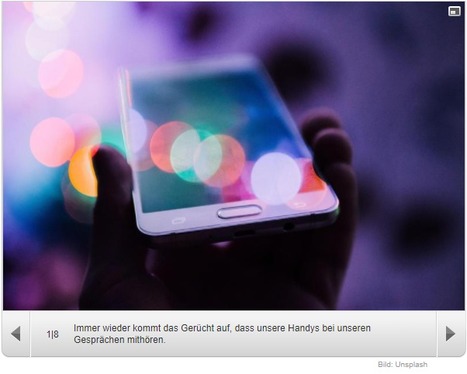

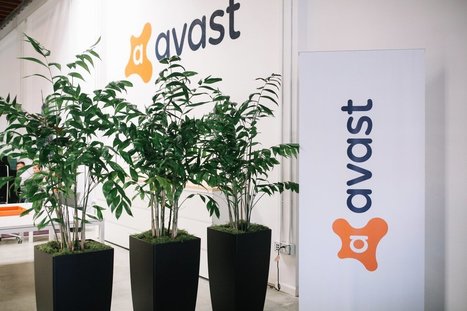

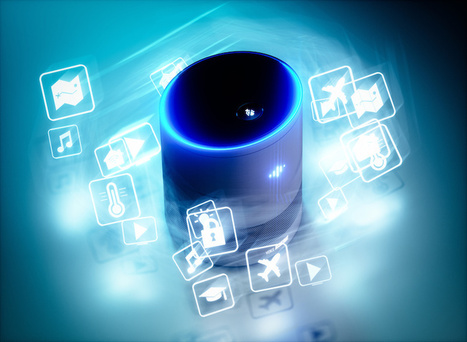
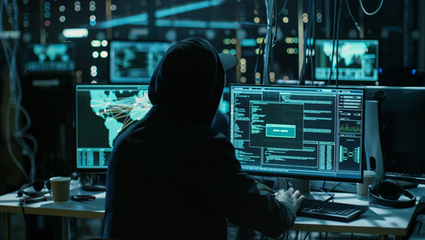

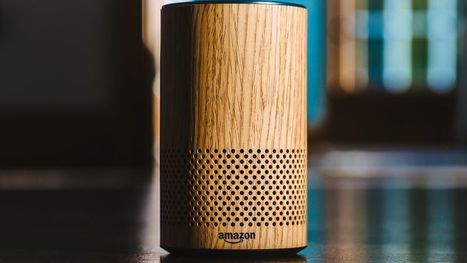





Amazon’s AI-enhanced Alexa assistant is going to need all your voice recordings, and there’s nothing you can do about it. An email sent to Alexa users notes the online retail giant is ending one of its few privacy provisions about recorded voice data in the lead up to Alexa+. The only way to make sure Amazon doesn’t get ahold of any of your vocals may be to quit using Alexa entirely.
Learn more / En savoir plus / Mehr erfahren:
https://www.scoop.it/t/securite-pc-et-internet/?&tag=Privacy
https://www.scoop.it/topic/securite-pc-et-internet/?&tag=Alexa